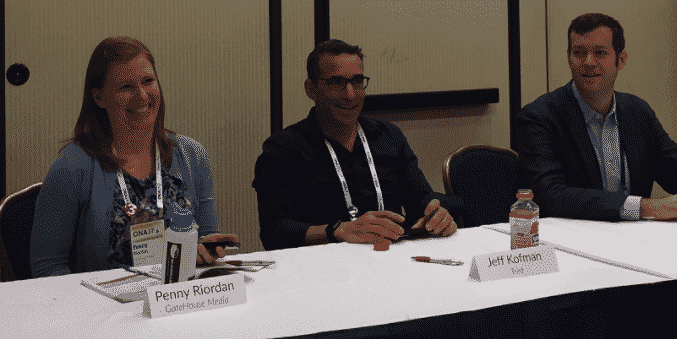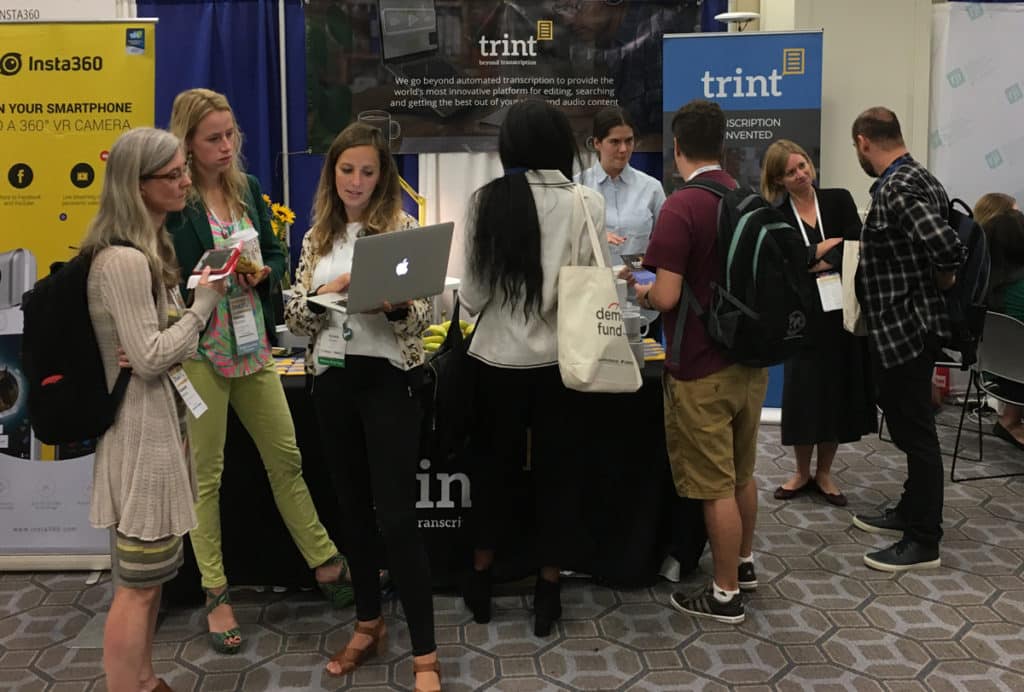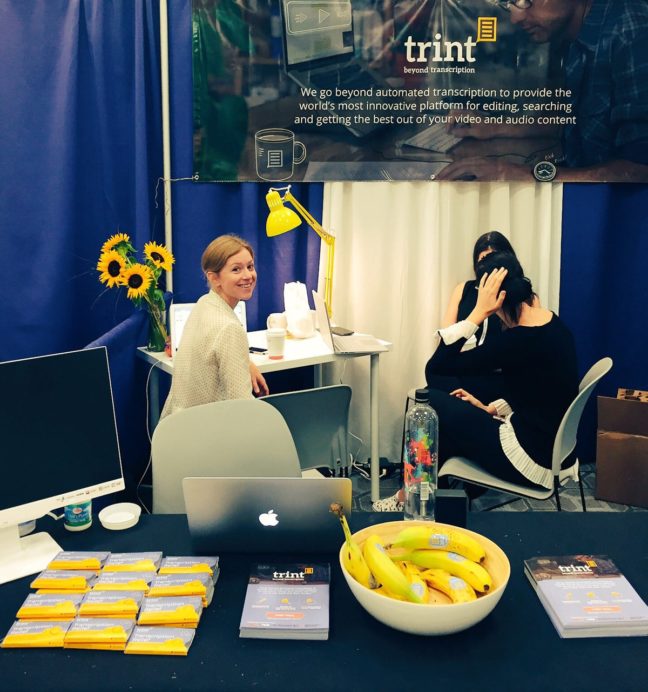
ONA17 Midway Panel: Maximizing the value of your journalism with fewer resources in a multi-platform world
We just came back from Washington DC and the Online News Association 2017 Conference, which was a blast. With more than 3,000 people attending it's the biggest journalism conference of the year. Jeff's panel session, Getting the Most Out of Your Content: Maximizing the Value of Your Journalism with Fewer Resources in a Multi-Platform World, sparked some serious and insightful discussions about the future of journalism and storytelling.
We're very grateful to Austin Smith, CEO of Alley Interactive, to our moderator Penny Riordan, Director of Digital Content Partnerships at GateHouse Media, and to our fantastic audience in DC for making the panel a huge success. Here's what everyone talked about:
One of the main questions the panel addressed was how to maximize content ROI'not just for journalists, but for any organization with a content creation workflow.
Jeff started his career as a TV reporter in the 1980's with manual typewriters, the news wires came on teletypes that went clackety-clack with rolls of paper spitting out the news. For modern journalists, this type of technology is practically prehistoric. Yet one part of the workflow from that era hasn't changed: transcription - how we get the content out of recorded interviews, speeches, news conferences etc.
'If I have an hour-long interview and I go back to the newsroom, I can't do anything with it until I find the quotes,' Jeff explained. 'And that's the problem. You have comb through that hour to find the nuggets.'
To this day, a lack of time and budget limits what journalists can do with their interviews. The irony is that newsrooms pay a lot of money to send out journalists to get those interviews in the first place, but they're much less willing to wait for them to find the nuggets.
But most interviews are like icebergs. We only use a tiny fraction of them. The rest is what Jeff likes to call 'dark data''content that isn't easily searchable. 'Right now most of the cost is in gathering the material, but most of that material withers,' Jeff lamented.
Imagine if newsroom archived all their interviews, and if none of that was dark data. They could search key terms and instantly go through old interviews and stories constantly repurpose content or surface new content. That is the challenge that all content creators, from journalists to researchers to marketers, face today.
How do you access dark data? By developing the right technologies to do so and by streamlining workflows.
Looking back on his 30+ years as a journalist, Jeff didn't have much that was good to say about the cumbersome transcription workflow - he figures he spent thousands of hours of his career transcribing. 'For a long time a lot of journalism was stenography.'

Constant Crowds: Journalists and editors lined up to speak with the team at the Trint booth at the ONA17 Conference in Washington.
Transcription aside, the rest of the storytelling workflow'the process of finding the best content and putting it in front of the right audience'has improved tremendously.
For example, one of the most crucial requirements for storytelling is collaboration. In an ideal world, content gatherers, curators, and creators need to be able to meet together, in real time, to work together on the story.
Fortunately, in terms of current capabilities, we're already there. Jeff and Austin both agree that Google Docs is probably one of the best content collaboration solutions on the market. But it's an imperfect tool. When you have too many people in a single Google Doc, it can be a nightmare.
Some newsrooms have circumvented the adoption problem by building their own proprietary systems from scratch. The Washington Post and The Associated Press are licensing their technology to other newsrooms. 'It's unbelievable how much innovation there is out there for journalists,' Jeff explained.
But those extremely well-financed organizations are the exception, not the rule. More moderately financed newsrooms don't have the luxury of constantly trying out new technologies to add to their stack. They are forced to rely on workflows that are stuck halfway between modern efficiency and legacy drudgery.
The problem is that legacy systems and CMS's continue to limit most newsrooms and marketing departments today. That's why, at least for now, the best way to think about adapting new technologies for a multiplatform world is to continue solving organization-specific problems.
What are the little pieces in our workflow that we can actually control? That don't involve reinventing the wheel? How can we do more with less?
As an ESPN producer said to Jeff at a recent meeting at ESPN HQ in Bristol, Connecticut, 'Our workflows are hard-fought and hard-won.' Storytellers have to make technology work with their organization and their existing workflows, not the other way around.
Jeff believes that newsrooms have to not only find smarter and faster ways to surface the best content and put it out there, they also need to create different types of content that they may not have considered.

Trint booth at ONA17
For example, many people would agree that podcasting is a great step forward for storytelling as a medium. 'Who knew that a print organization would have, essentially, a radio station?' Jeff asked, talking about legacy print organizations like McClatchy and The Washington Post. 'There are a lot of really smart podcasts out there. Those kinds of things really add value and quality engagement.'
But with more content types comes even more dark data. Content discovery is inextricably tied up with search capability, and we still live in an era of text-based search. That's why Jeff has devoted the last three years of his career to Trint, the London-based A.I. transcription company he founded and runs. Jeff and Trint's fast-growing team are dedicated to building a new series of tool that use technology to transform that way we access and distribute recorded content.